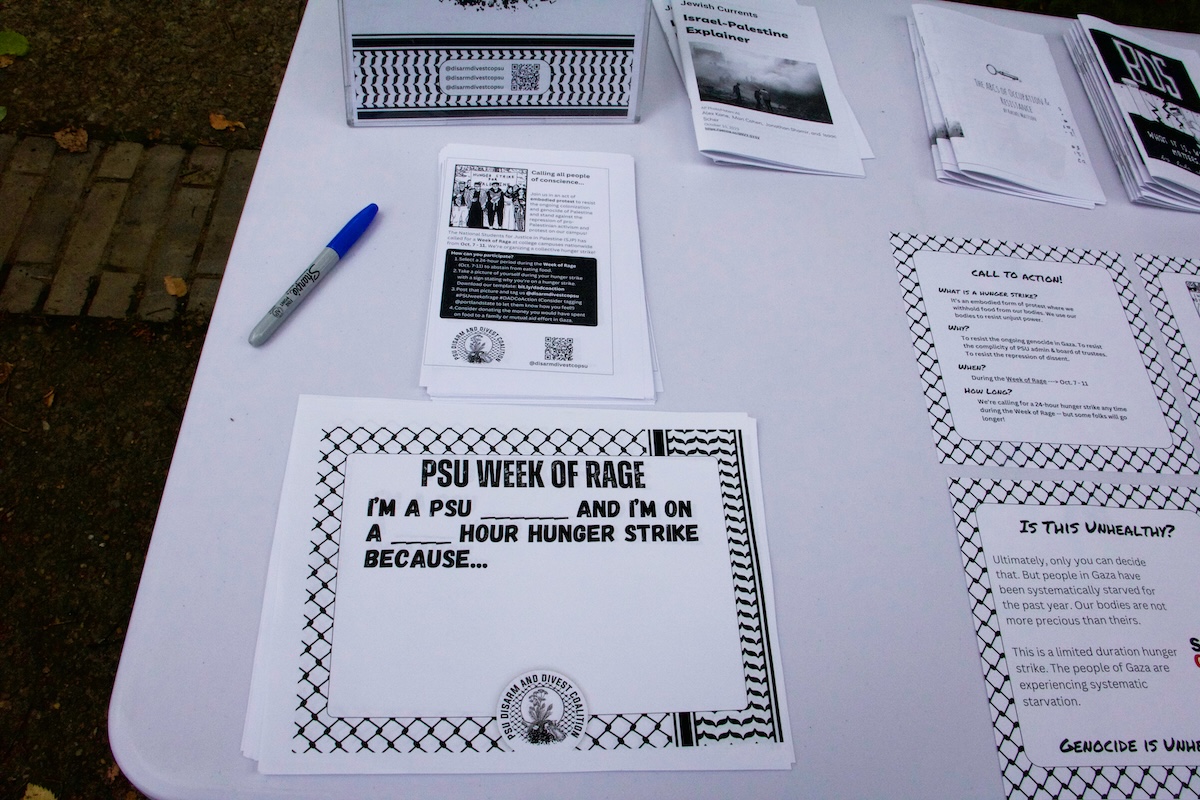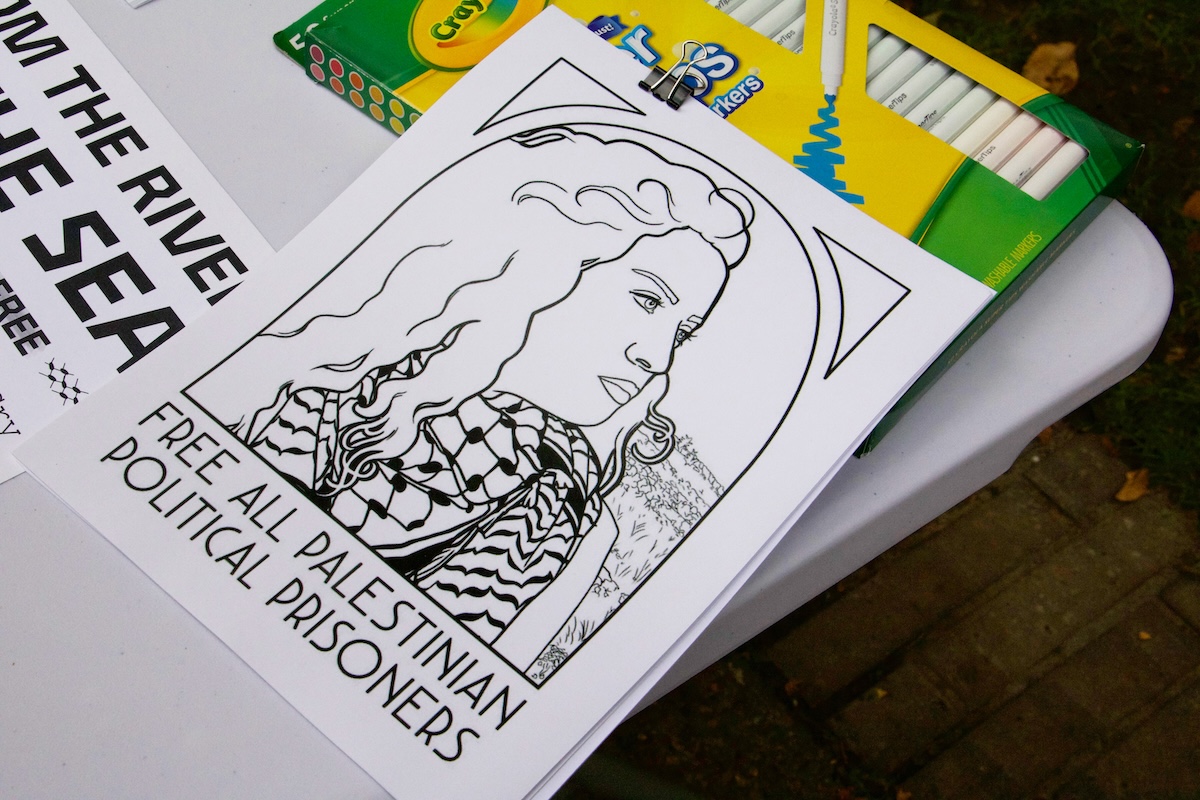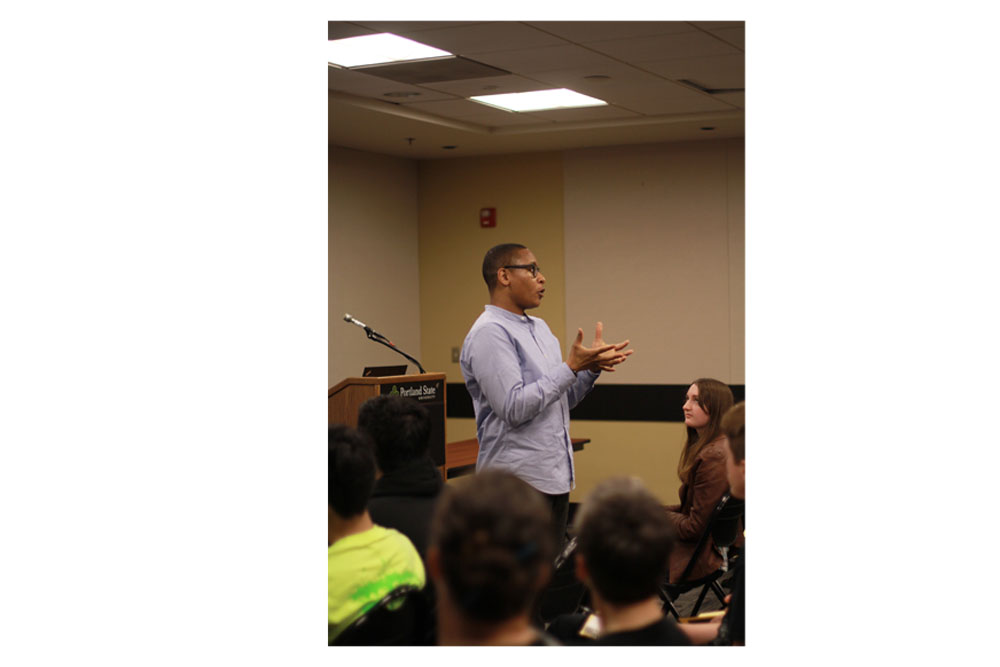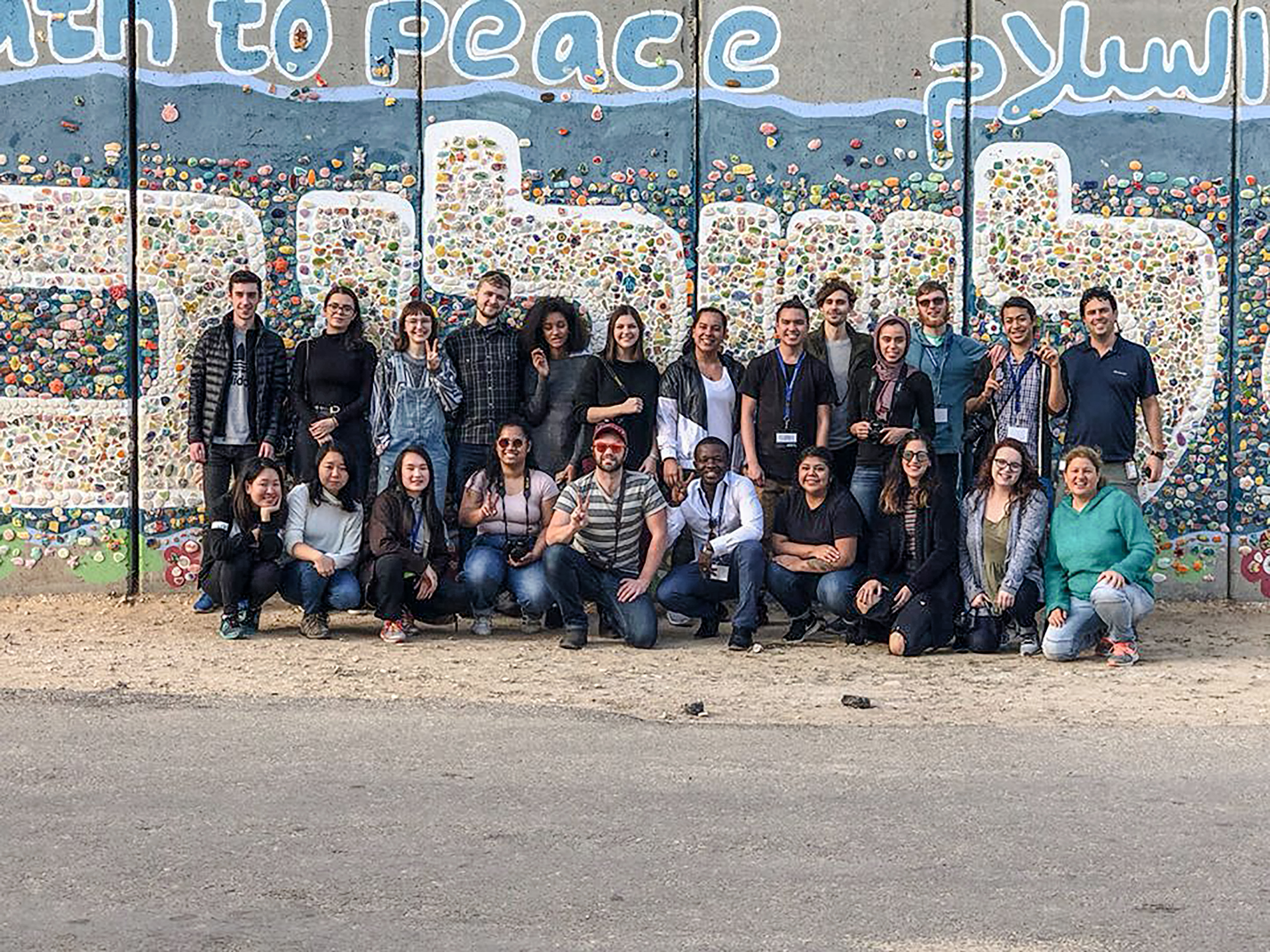16 hours. 24 hours. 120 hours. These hours mark the period of time that the PSU Disarm and Divest Coalition activists have committed to going on hunger strike. Hunger strikes are a form of protest by which strikers refuse food for various amounts of time in order to bring attention to a usually political cause.
Hunger strikes at PSU are being organized by the PSU Disarm and Divest Coalition—a group committed to “the disarmament of PSU’s police & for PSU’s divestment from war profiteers,” according to their Instagram page’s biography. The group has called for 24 hour hunger strikes during a Week of Rage from Oct. 7 to Oct. 11, coinciding with the anniversary of the escalation of violence in Israel and Palestine.
According to flyers handed out by PSU Disarm and Divest, the hunger strike was initiated to bring awareness to the colonization and genocide of Palestine and the repression of pro-Palestine activism on the Park Blocks.
An extremely personal form of protest—each hunger striker has a different relationship to their strike with everyone being united in wanting to raise awareness for Palestine.
“I felt like there was something spiritual that got me closer to the Palestinian people and others around the world who are facing starvation,” a PSU Student who underwent a 24 hour hunger strike said. “It was a simple little thing that I could do that is not illegal… but that makes a statement and has the power to educate more people about the issue.”
Activists at PSU have continually called for the university to cut ties with Boeing, a weapons manufacturer that provides arms to Israel. Boeing’s hiring relationship and donations to PSU came under intense scrutiny last year and is still a point of concern for activists.
“I do have the testimony of many trusted faculty and staff that say that PSU has had a long relationship with Boeing,” the same PSU Student said. “What I would ask mostly from the administration is financial transparency. We are students here. We are paying a lot of money to be here and I believe we have a right to know where our dollars are going.”
In a statement released in April, PSU President Ann Cudd stated that PSU would pause all gifts and grants from Boeing until a forum planned for May could be held to listen to community members’ concerns regarding the relationship. The forum was ultimately canceled.
The Director of the PSU Women’s Resource Center, Nic Francisco is participating in a 120 hour hunger strike. They explained how hunger strikes can serve as a vehicle to express the hopelessness felt regarding political activism.
“I was thinking about how I feel powerless… and the history of hunger strikes comes out of that feeling of hopelessness where you’ve tried to access change through other ways and you haven’t seen [that change] happen,” Francisco said. “So you use the thing that you have the most control over, which is your body… [and] I do not believe that our bodies are more precious than these Palestinian bodies that are being slaughtered.”
According to Francsico, recognizing activists of the past while not respecting activists in the present is not a problem unique to PSU. Mainstream institutions like PSU serve to uphold the status quo—a status quo which activists continually challenge.
On May 13, 2024 the Associated Students of Portland State University (ASPSU)—PSU’s student government—passed a resolution to divest from Boeing. This was the third resolution of its kind passed by ASPSU since 2016. One result of the May 13 resolution was the creation of the Committee on Socially Responsible Investment and Partnership, which was announced through the Office of the President.
According to Cudd’s announcement, the Committee’s role is “to examine PSU’s practices around investment and partnership and make recommendations to support and enhance alignment with our university’s mission and values.”
The Committee’s announcement also included the cancellation of an open public forum to address PSU’s relationship with Boeing—with Cudd believing that the context of a Committee would better address the issue. Though she reaffirmed that relations with Boeing were still paused until the Committee could give their recommendations.
Despite the challenges activists face on campus, Francisco has been motivated throughout their hunger strike by seeing the impacts it can have on students’ lives.
“Yesterday I was tabling in the Park Blocks for the hunger strike, and a Palestinian student and a Yemeni student both came up to me and talked to me during that time,” Francisco said. “They saw that, felt recognized in it [and] said thank you for doing this. It was more than I needed.”








